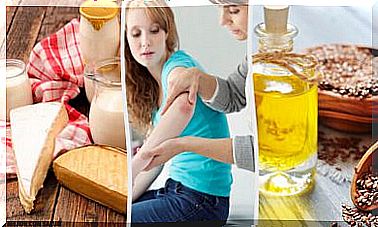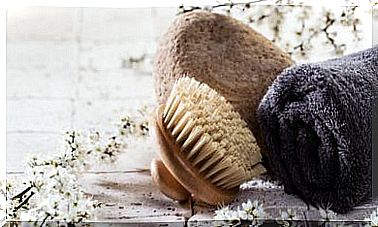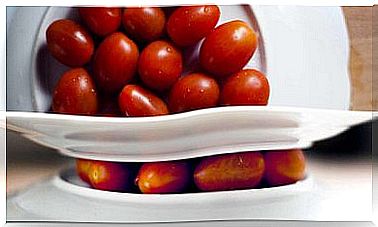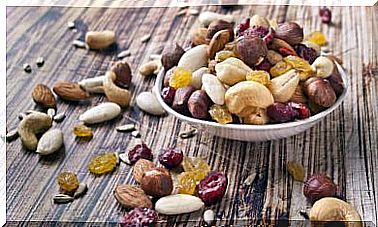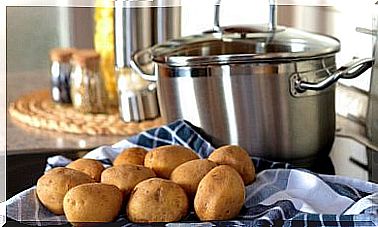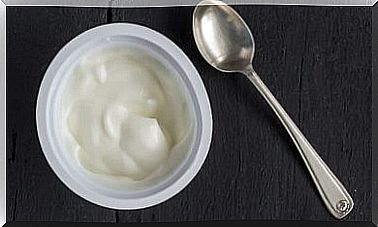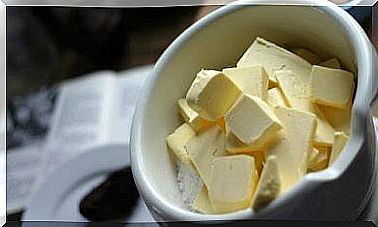Leg Swelling: Causes And Natural Remedies
Leg swelling can be caused by being overweight, poor circulation and fluid accumulation. Learn tips and natural remedies to avoid it.
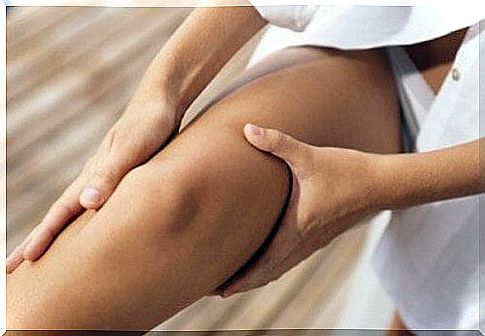
Being overweight, poor circulation, and fluid build-up are just some of the causes of leg swelling. We must know that this problem is not related only to aesthetics but to health.
That is why it is vital that you treat it as soon as possible. In this article you can learn more about this condition. Also, tips and some herbs that could help reduce swelling in the ankles and legs.
Swelling in the legs: What should we know?
That feeling that the socks have shrunk or that we have a time bomb in the calves has a name: edema, which according to this information from the United States National Library of Medicine, is the accumulation of fluid in the extracellular or interstitial space , in addition to the cavities of the body.
It often appears on the legs, ankles, and feet, for a number of reasons. Added to this, it can cause other symptoms, such as:
- Tiredness.
- Tingle.
- Pain.
It occurs mostly in women, and usually passes at a certain age, due to hormonal changes. It also has a lot to do with our habits, that is, whether they are healthy or not. Genetics also have an important implication on this issue.
Now, let’s see what could be one of the most frequent causes of swelling in the legs:
Use of inappropriate footwear
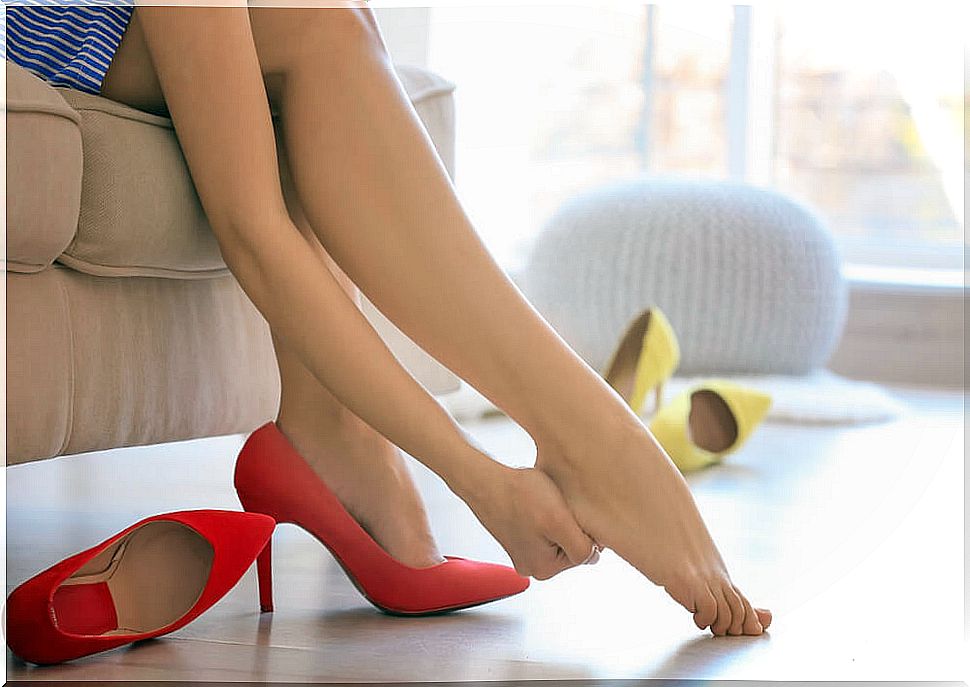
As beautiful as they are, the excessive use of heels has consequences that could be serious for health. The same happens with very tight shoes or when we wear any type of footwear for several hours at a time.
Stand all day
Carrying out jobs such as a store clerk or simply being in a place that requires you to be standing the entire day, as there is a high possibility of experiencing swelling in the ankles and legs.
Spend a lot of time sitting

In this case, work reasons could be named, such as jobs that require sitting in an office, however, another reason could be mentioned such as traveling very long distances, forced to sit for long hours. When we do not offer mobility to the legs, then, it can result in some of the fluid going down and being stored in the ankles.
Overweight
Obesity, which is characterized by excessive accumulation of fat or general hypertrophy of adipose tissue in the body, is strongly associated with swelling in the legs, due to the accumulation of fluids that causes this health problem. This is suggested by this study by the Xunta de Galicia (Spain).
Little exercise
A sedentary life is one of the worst things we can do to our bodies. Not playing sports or doing physical activities causes blood circulation problems and swelling of the lower extremities.
Hormones
It is natural for women to accumulate fluids in the lower extremities a few days before starting their period.
This is called dropsy, which is a pathology that involves the retention of water in the internal tissues, even if that is only one of the symptoms among its many harmful effects on health, such as diseases of the circulatory system, dysfunctions of the kidneys or digestive system.
It also affects the belly. Also, menopause and climacteric are two causes of swelling in the legs and ankles.
Contraceptive pills
It is believed that some of the women who choose contraception may develop bloating problems. However, research like this one, carried out by the University of Valladolid, affirms that there is not enough scientific evidence in this regard.
Pregnancy
During pregnancy, the changes in the body of the future mother are varied. One of them is the swelling of the ankles that is aggravated by the weight gain typical of this stage.
Unbalanced diet
Excessive consumption of salt causes bloating; When our diet is full of sodium, the liquid accumulates in different parts of the body. Especially in the legs, ankles and feet.
In addition, the deficit of certain nutrients and, above all, the lack of enough water each day can cause inflammation in the body. This is stated in this study by the Las Condes Clinic (Chile).
See also: Symptoms and prevention of osteoarthritis
Tips to avoid swelling in the legs
Taking into account the causes, you will surely be able to understand what are the changes you should make in your life. Likewise, we give you some keys so that inflammation or edema is not common:
- Elevate your legs every day. You can do it at night or if you have a free minute at work.
- Change your posture if you travel long hours: get up and walk down the hallways or make stops.
- Exercise 2-3 times a week. To start, just go for a walk.
- Reduce your salt intake: choose sea salt or season your meals with vinegar, lemon and spices.
- Wear comfortable shoes. If you have to wear heels, don’t wear them all day.
- Choose support socks, they are bought in stores and serve to improve circulation.
- Consider another method of birth control other than pills.
- Eat a healthy diet full of fruits and vegetables. Don’t forget to drink at least 2 liters of water per day.
- Do not wear too tight clothing: jeans or leggings are the worst enemy of leg swelling.
- Maintain a healthy pregnancy: do not gain too much weight and be careful with your meals.
Infusions and herbs to reduce swelling in the legs
You already know the causes and how to prevent this problem. Now is the time to eliminate it from your life. You can do it with natural and easy-to-prepare remedies. The infusions or teas that we show you below could help.
Horse tail
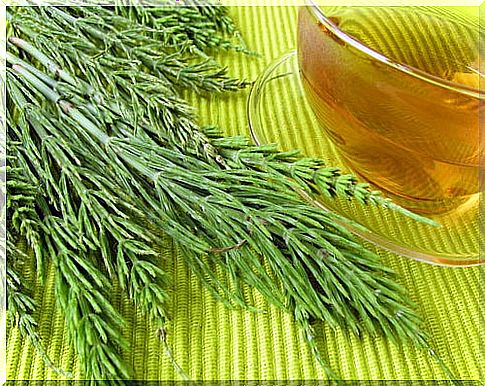
It is a diuretic plant that helps reduce fluid retention and relieves the feeling of bloating. In addition, it is a very effective cleanser, promotes blood circulation and activates kidney functions. We will take it in the form of an infusion. It is recommended to consume up to 3 cups a day.
Ingredients
- 1 tablespoon of horsetail leaves (15 g).
- 1 cup of water (250 ml).
- Honey or stevia
Preparation
- First, bring the water to a boil.
- Add the herb.
- Boil for a few minutes, remove from heat and cover.
- After 10 minutes strain, sweeten with honey or stevia and drink.
We recommend you read: Artichoke and horsetail tea to treat cellulite
Dandelion
It is another of the cleansing herbs that can be very helpful if you suffer from fluid retention. It helps to purify the blood and improve kidney work, as suggested by this study from the University of Aarhus (Denmark). The dosage for a dandelion tea and the instructions are the same as for horsetail.
Green Tea
It is known for its anti-inflammatory properties, according to this study by the Bengal School of Technology (India). You can get it in a bag or buy the herb in a health food store.
Consume 1 cup on an empty stomach, another after lunch and a third at night before sleeping.
If you suffer from swelling in the legs, use these tips and remedies to avoid it. However, if the inflammation does not stop or is accompanied by pain, you should visit a doctor.
